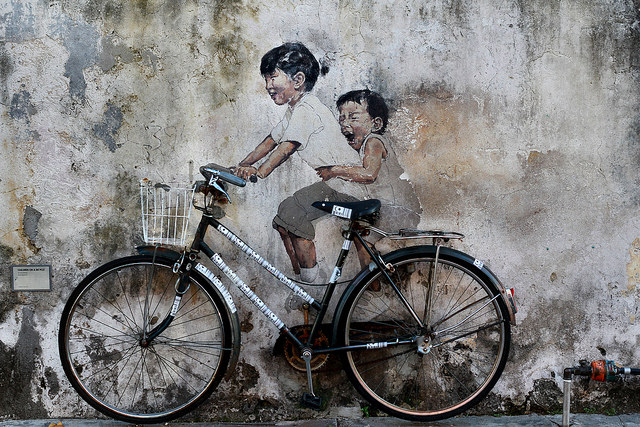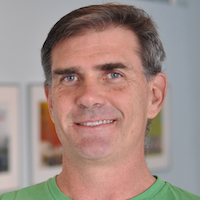For a long time, I didn’t feel good unless I had caffeine.
Although I had convinced myself that this was acceptable, eventually I had to face up to the fact that I had forgotten many of the simplest pleasures in life.
It doesn’t feel good to rely on a drug for your sense of well-being.
I realized I had a problem one afternoon when I was weighed down at work with some human resource challenges—I run a two-studio yoga business—and I needed something to look forward to in order to pull my mind out of the spiral of stress.
The first thought that came into my mind was coffee. In this moment, I finally realized my dependence on caffeine and was honest with myself about the fact that I had become reliant on this drug for energy, and indeed, for happiness.
I resolved in that moment to get off caffeine and get back to what I thought of as my “original body.”
I had the visceral memory of being 10 years old and tearing around the neighborhood with the other kids on our bikes, feeling great and enjoying life. In those days, I experienced delight in the sensations of physical exertion, the sun on my hair, and the sense of connection that comes from laughter with friends.
In contrast, the adult me was moving through the days in a fog, passing by many small pleasures without a glance. My standard of happiness had decayed.
I was not alone. You may even be in the same boat yourself.
The vast majority of Americans—over 90 percent—consume caffeine daily. [1] Although dependence on caffeine is both common and socially acceptable, these statistics show that it is by far our most popular drug.
And although the prevalence of caffeine use makes it easy to shrug off the health impacts, research shows that over-consumption affects our body and mind in a variety of ways. Heavy caffeine use is associated with increased incidence of mood swings and insomnia. It can also cause greater muscle tension, and impair your body’s ability to absorb nutrients from food. [2]
I decided it was time to break the cycle. One of the biggest challenges I faced—after gutting it through two weeks of withdrawals—was what to do when I needed a boost in energy or mood. [3]
To address this, I adopted three lifestyle changes:
1. Exercise. I decided to start each day with a brisk walk or comparable exercise. Sometimes I’ll run or do yoga or swim instead.
It gets my heart going, washes away tensions and fears about the upcoming day, and infuses me with a feeling of energy and alertness that lasts, unlike a caffeine rush.
It doesn’t require a big time investment to get these benefits—even 20 to 30 minutes of exercise starts my day on a positive note.
2. Tea. I have always loved going to coffee shops and reading. I still go, but I’ve switched to rooibos tea with half and half. Not only is it caffeine free, but rooibos boasts a number of other health benefits. [4]
I’ve also added some basic chair yoga to my coffee shop routine. I stretch and twist and wake up my spine while reading and writing in what I find to be a creative environment.
3. Sleep. I enjoy a deep night’s sleep. During my two weeks of withdrawal from caffeine, one of the turning points was the best sleep I’d had in years.
Now I look forward to and enjoy solid sleep. I used to have to plan my caffeine use around what time I was going to try to go to sleep. Now there is no such analysis.
I sleep when I am tired and nap—yes, sometimes mid-afternoon—when I need to. Responding to my body’s signals in this way allows me to feel well-rested and energized during my waking hours.
In liberating myself from caffeine, I have regained my ability to delight in living in my own body. My sense of happiness and well-being comes from working with my body instead of against it, as I enjoy and gain energy from movement, sleep, and experiencing the simple pleasures of my world.
References:
[1] Villanova University. “About Caffeine.” Retrieved Jan 14, 2017 <http://www1.villanova.edu/villanova/studentlife/health/promotion/goto/resources/drugs/caffeine.html>
[2] Health Research Funding. “25 Shocking Caffeine Addiction Statistics.” Retrieved Jan 14, 2017 <http://healthresearchfunding.org/shocking-caffeine-addiction-statistics/>
[3] Sujantra McKeever. “Adventures with the Dark Lord: How I Did Battle with My Caffeine Addiction, and Won.” Retrieved Jan 14, 2017 <http://www.huffingtonpost.com/entry/adventures-with-the-dark-lord-how-i-did-battle-with_us_57e41a1fe4b05d3737be570f>
[4] WebMD. “The Tao of Tea.” Retrieved Jan 14, 2017 <http://www.webmd.com/food-recipes/features/tao-of-tea#1>
Author: Sujantra McKeever
Image: Flickr/Phalinn Ooi
Editor: Callie Rushton


 Share on bsky
Share on bsky





Read 5 comments and reply